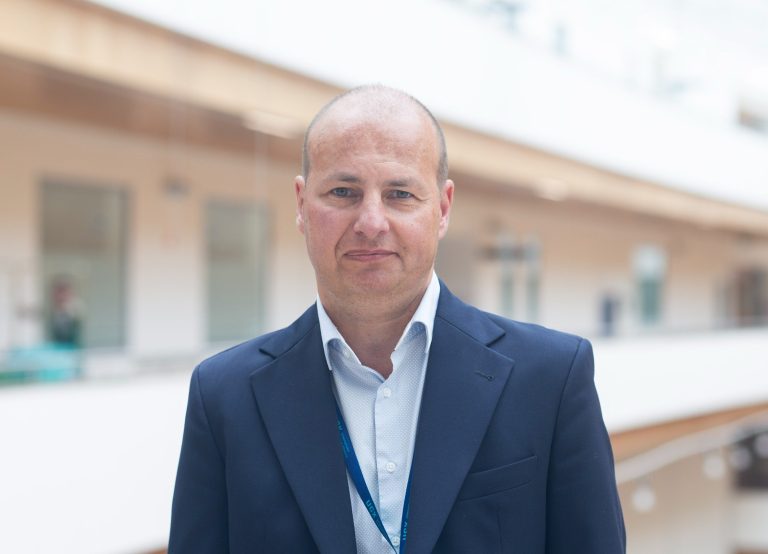Prof. Banach about the Polish vaccine against atherosclerosis and how many steps a day protects against a heart attack: Wprost talks about science and medicine

The vaccine against atherosclerosis is being developed with the participation of Polish scientists. Although research on it is being delayed due to the war in Ukraine, there is hope that the first people in Poland will receive it next year. Prof. Banach also talks about which nutraceuticals can lower LDL cholesterol and how many steps a day actually protect against heart attack and death.
If successful, it would be a breakthrough in medicine worthy of a Nobel Prize: a vaccine against atherosclerosis, which is being developed by, among others, Polish scientists, is to work on a similar principle to, for example, the flu vaccine. However, by reducing “bad” LDL cholesterol, it is supposed to prevent the development of atherosclerosis, which is the main cause of death today.
Listen to the entire conversation with prof. Maciej Banach:
– It will be a vaccine with a very similar mechanism of action to others: after its administration, the body will produce antibodies: in this case against the PCSK9 protein. They will inhibit the formation of this protein, thanks to which LDL, i.e. the so-called bad cholesterol will be easily removed from the plasma and there will be less of it in the blood vessels – explains Prof. Maciej Banach, doctor and scientist, cardiologist, hypertensiologist, lipidologist, president of the Polish Lipidological Society.
The vaccine is in the human testing phase
The vaccine has already completed the experimental and toxicological testing phase; their results were positive, so it could be used in humans. 17 volunteers have already accepted it.
– From outside Poland for now. The idea for the vaccine was a joint idea of Polish and Iranian scientists, and it was reviewed by scientists from all over the world. I hope that at the turn of 2024/25, if we manage to obtain financing, it will be possible to start the clinical trial phase also in Poland. These are research phases 1A, 1B, and perhaps also 2A – explains Prof. Maciej Banach.
The vaccine will be intended primarily for people from risk groups, including: with familial hypercholesterolemia, as well as for those patients in whom previous methods of lowering LDL cholesterol have proven to be ineffective. The great advantage of the vaccine is the method of its administration: after the first dose, the patient would receive a booster dose (after a few months), and possibly another dose after 1-3 years.
– We also want the vaccine to not be expensive, because very modern drugs, e.g. based on mRNA technology, are often very expensive and it is difficult to talk about their reimbursement. We really want the vaccine to be available, says Prof. Banach.
Nutraceuticals: Which Supplements Really Work?
Prof. Maciej Banach also conducts research on nutraceuticals, i.e. food and supplements with potential pharmaceutical properties. – The Central and Eastern European market is the largest sales market for nutraceuticals. Many people use them in the belief that they have a healing effect. However, no one has tried to check whether they can actually have an impact on lowering cholesterol. We checked it as part of an international panel of lipid experts. In 2017, we published for the first time in the world a list of nutrapharmaceuticals that may have beneficial effects when it comes to lowering LDL.
It turned out that out of several thousand such supplements, only 12 actually work, and only a few can have the highest level of recommendation, i.e. taking them can actually lower LDL! Derivatives of red rice, which is natural lovastatin, monacolin A, berberine, spirulina, artichoke, garlic, green tea, omega-3 acids, may be effective – says Prof. Banach.
It is worth introducing these products into your diet, but if you want to use supplements, only those produced by reliable companies. There were situations when, for example, red rice was contaminated with citrinin, which may even have cancer-causing properties.
Already 4 thousand steps a day reduces the risk of heart disease
The research of Prof. was widely recognized around the world. Banach, which showed that even 4,000 steps a day can extend life.
– Some recommendations mentioned 6,000. steps, others about 8 thousand, and still others about 10 thousand. steps per day. After analyzing several observational studies covering almost 230,000 patients, we came to the conclusion that just 4,000 steps a day is enough to reduce mortality regardless of the cause, as well as mortality from cardiovascular causes. 4,000 steps a day is the minimum value, but each increase in the number of steps by 500-1,000 reduces mortality by 7 to 15 percent, and the optimal number of steps, when this reduction in mortality is the highest, is for people over 65 years of age between 6 and 10 thousand, and for younger people: 7-13 thousand. steps.
However, even 4,000 steps a day are very important. It is important to start and be regular in physical activity – emphasizes prof. Banach.
Prof. Maciej Banach also talks about: why the war in Ukraine delayed work on a vaccine against atherosclerosis; about difficult competition with other scientific groups and the need to support scientific research; how ideas for new scientific research are born; why a doctor must lead by example when it comes to a healthy lifestyle; what physical activity he likes best and… what his cholesterol level is.
Prof. Maciej Banach is a cardiologist, hypertensive lipidologist, president of the Polish Lipidological Society, head of the Department of Preventive Cardiology and Lipidology of the Medical University of Lodz, the Heart and Vascular Research Center at the University of Zielona Góra and an assistant professor at the Ciccarone Center for the Prevention of Cardiovascular Disease, Johns Hopkins University School of Medicine, Baltimore USA. Previously he was, among others, deputy minister of science and higher education, and in the years 2014-2021 director of the Institute of the Polish Mother's Health Center in Łódź. He also serves as chairman of the Lipid and Blood Pressure Metaanalysis Collaboration Group, as well as the International Lipid Expert Panel.






